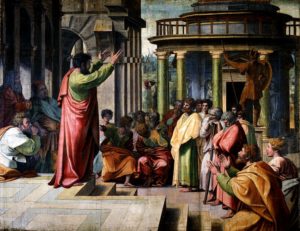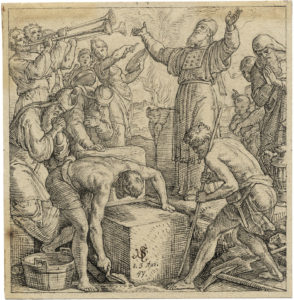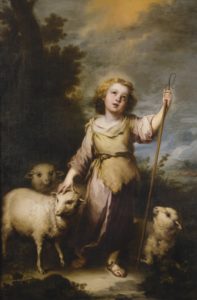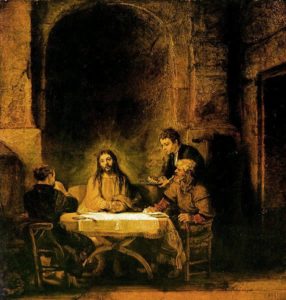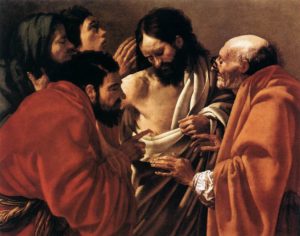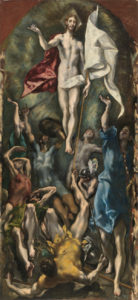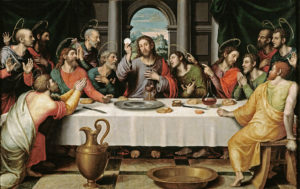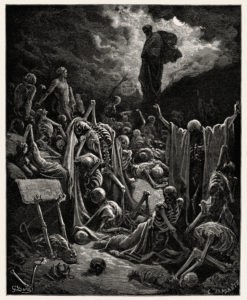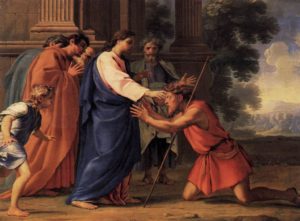Thoughts on Today’s Lessons for May 28, 2017
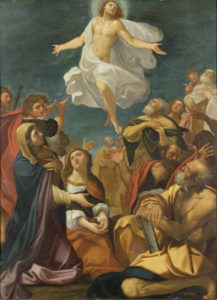
Ascension of Christ (c. 1640), oil painting on copper by Giacomo Cavedone (Bologna, Italy, 1577-1660), in the Ahmanson Gallery of the Los Angeles County Museum of Art.
The fifty days of Eastertide are nearing their end: Pentecost Sunday is next week. In the Sunday readings since Easter we have seen the empty tomb and heard of mysterious appearances of the risen Christ, then listened as Jesus tells the apostles of God’s love and our salvation. Now we arrive at the story of Jesus’ ascension into heaven. Jesus tells the apostles that the Holy Spirit is coming to send them out to the world with the Gospel, a promise that we will hear fulfilled in wind and fire on Pentecost.
Many modern Christians are troubled by the angry imagery of fleeing enemies perishing in fire and smoke at the hands of an angry God. But then, invoking the name of God that Jewish tradition considers too holy to speak aloud, the Psalm changes in tone to a gentler hymn of praise and thanksgiving. Those who live righteously and praise our God will receive favor and blessing, just as did God’s people traveling through the desert to the Promised Land.
Second Reading: 1 Peter 4:12-14, 5:6-11
The Christian community in Asia Minor (now Turkey) was suffering under a “fiery ordeal” of persecution for their faith when they received this letter in Peter’s name. The writer cannot make their suffering cease, but reminds them that in this suffering they share not only the suffering of their Christian brothers and sisters but even of Christ himself. Stay the course and resist evil, the letter goes on, and know that God is with us and will provide support and strength.
Gospel: John 17:1-11
Today we hear the third and final excerpt from Jesus’ farewell conversation with the apostles at the Last Supper. We have heard Jesus explain that he must soon leave this world and return to the father, while promising that God will send an Advocate to be with them and help them, a promise that will be fulfilled on the first Pentecost. In Sunday’s Gospel, Jesus turns from his friends at the table to address God directly in prayer. Declaring that the hour of his death has come, he prays for the disciples. He praises them for their faith and trust, and asks God to protect them, to keep them united just as Jesus and God are one.

